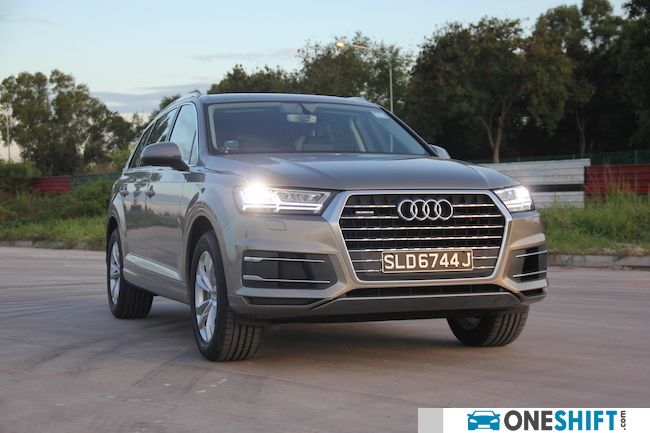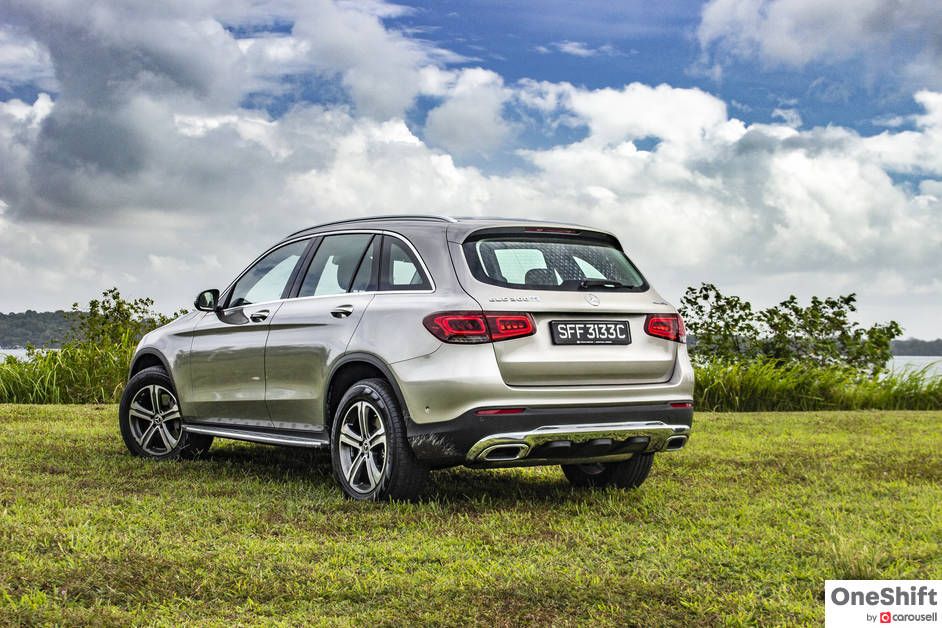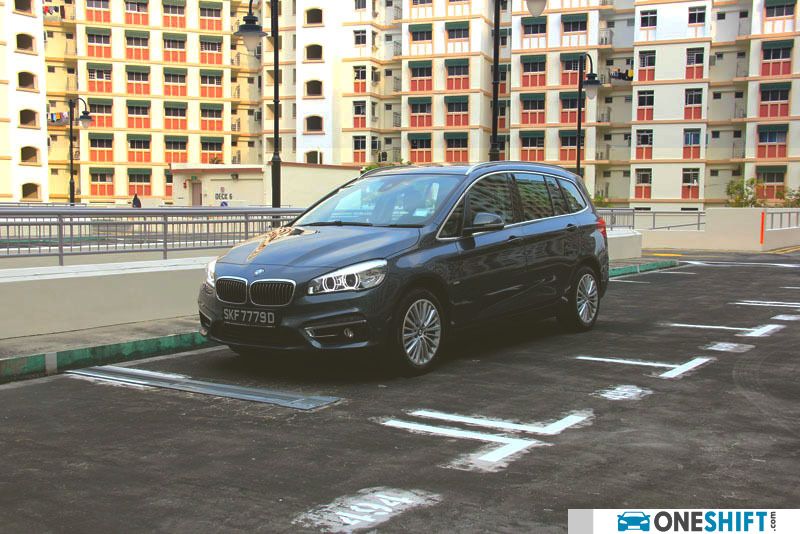Could An SUV Be the Dream Car You Never Knew You Wanted?
If we look past all the noise, and distill the topic down to the core, we are left with the real underlying question - Can a 7 Seater SUV really replace a full size MPV? Let’s take a look.

In Singapore, we love our MPVs with a steadfastness that is reflected by the sheer number of Toyota Estimas and Alphards available for COE renewal. We regard an MPV as a sort of golden standard, and benchmark of family life and lifestyle. In recent years however, the modern SUV threatens to replace the MPV as that golden standard by claiming to be able to do everything an MPV can do (including carrying 7 people in some cases), and look more fashionable doing it. This changing of the guard is echoed globally, with global demand for SUVs surging in recent years, and the demand for MPVs plunging in the same period. Suffice to say, MPVs have lost the fight in most parts of the developed world. Interestingly, while the provision of SUV options from almost every major car maker signals agreement with this trend, the MPV community in Singapore has held on enough, such that the revered car template has not actually faded into oblivion. If we look past all the noise, and distill the topic down to the core, we are left with the real underlying question - Can an SUV really replace an MPV? Let’s take a look.
There is really no disputing the practical prowess of a full size MPV. Against an MPV’s sliding doors, adjustable second row seats, and very comfortable third row legroom, A 7-seater SUV will never be able to carry the same amount of people in the same comfort, or provide the same ease of getting in and out (not even a Mazda CX-9 or a Volvo XC90). Structurally, the sportier and more finessed SUV template just does not lend itself as well to navigate these tasks. Even if you consider the “on paper” capabilities of a 7-seater SUV to carry 7 people, an MPV just does it better, and provides much more comfort in the process.

That being said, SUVs offer practicality in a different way. They do so by offering more modern engine set ups, and are often built with smaller, turbocharged engine setups than your MPV counterparts. Because these smaller turbocharged engines kick in their turbochargers anywhere between 1,200 rpms - 1,450 rpms, you will realise that these SUVs are a lot easier to get up to speed around town, which reduces over-revving, and saves fuel. Not to mention, you’ll save quite a bit on road tax as well. Compare this to the large, naturally aspirated engines offered on most full sized Japanese MPVs, and you’ll come to the realisation that such MPVs may be very practical to use, but aren’t at all practical to own. For these reasons, cars like the Volkswagen Sharan and the new Nissan Serena e-Power, come the closest to providing practicality both in terms of usage and ownership.
There is a traditional mindset that is still sporadically present today, especially among the older generation, that the larger the car, the more expensive and prestigious it is. It is little surprise then, that MPVs enjoyed a golden age during the 90’s and 2000’s, where the majority of car owners were born in the 50’s and 60’s. Multi-generation family units were also more prevalent in those days, making the MPV an ideal choice to shoulder the burdens of a large family. In the golden age of MPVs, family size and your ability to care for your family were the benchmarks of success and prestige. Today, success and class is reflected by our taste in premium brands, and prestige is, well, prestige. Therein lies the problem for MPVs today.

With the local workforce in Singapore today comprising mostly professionals, managers, executives, and technicians (PMETs), there are certain social indicators that help cement and reflect our social and financial standing among our peers. One key indicator is the car that we drive, or more specifically, the brand of car that we drive. As our family expands, and we go from having one child, to two children, to two children plus a helper, there usually comes a point where such a financially capable family unit in Singapore will consider purchasing a bigger car. The problem is, there are, or should i say were, no marquee MPVs that you could buy, only SUVs. With an inclination towards premium brands and pretty things, one can be forgiven for trying to squeeze a family of 5 into a GLC or X3, rather than sit comfortably in an Alphard/Vellfire. In fact, who wouldn’t purchase a GLC or X3 over an Alphard / Vellfire? I know I would.

What is worth scrutinising in the last 5 years however, is how BMW opted to address this gap with the 2 Series Gran Tourer (an MPV), and Mercedes - Benz has opted to achieve parity with the soon to be arriving GLB-Class (an SUV). The BMW has enjoyed much success on Singapore shores, and is a competitively packaged premium product, and it will be interesting to see if the similarly priced Mercedes will prove a worthy nemesis. Greying the lines further, are non-traditional options like the Seat Tarraco, and Skoda Kodiaq, which are winning fans over with their well thought out 7-seater SUV options, buoyed by more compelling branding which help these buyers to be perceived as slightly more discerning than the average driver.
So, can an SUV really replace an MPV? In more ways than one, there is no direct answer. Truth is, an SUV doesn’t JUST replace an MPV. It does it, and offers so much more beyond the tangible. In any case, the SUV’s path toward world domination won’t be slowing down any time soon, and it won’t be a matter of whether or not you will ever buy an SUV (of any size), but rather which SUV(s) you are going to buy in your lifetime. It is telling that where future cars are concerned, Mercedes-Benz's and Audi's first mass produced electric cars are SUVs, in the form of the EQC, and e-Tron. To me, that says a lot about where the industry is headed. Realistically then, the SUV could ultimately prove to be the dream car you never knew you wanted.
Credits:

- Convenient and Hassle-Free
- Consumer Protection
Transparent Process
With No Obligation


Get the Best Price for your used car
from 500+ dealers in 24 hours








